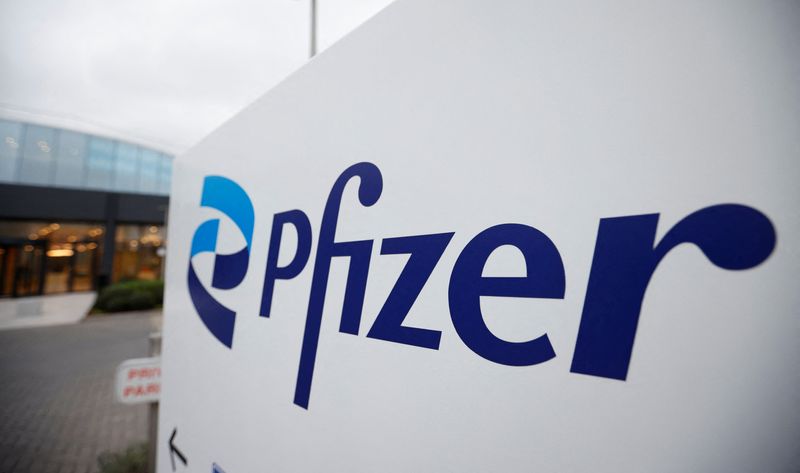By Maggie Fick
PUURS, Belgium (Reuters) -U.S. drugmaker Pfizer (NYSE:PFE) is ready to launch its respiratory syncytial virus (RSV) vaccine for both older adults and pregnant women in the United States and Europe later this year, executives said on Thursday.
Both Pfizer and British drugmaker GSK have RSV vaccines they hope to launch in the United States and Europe this year, pending regulators’ approval.
“We are anticipating approval in both the U.S. and Europe in time for rollout in the fall,” Kena Swanson, Pfizer head of viral vaccines research & development, told a media briefing at the company's biggest manufacturing and packaging site globally.
RSV is a leading cause of pneumonia in infants and the elderly, and decades of research have finally resulted in the two successful vaccines Pfizer and GSK are racing to introduce.
Some 14,000 people die annually in the United States of the lower respiratory tract disease caused by the virus, and analysts see a multibillion-dollar market for the vaccine by the end of the decade.
A GSK executive on Wednesday told Reuters that it was also ready to launch its RSV vaccine for older adults in the United States this year without supply constraints.
Neither company would say how many doses of their vaccines they intended to have ready for their respective launches.
The U.S. Food and Drug Administration (FDA) is expected to approve both vaccines for people aged 60 and above by May, while an FDA decision on the use of Pfizer's vaccine for pregnant women is due in August. The EU's decision, which could pave the way for the vaccines to be introduced in the UK as well, are due in the second half of the year.
Annaliesa Anderson, Pfizer head of vaccines research & development, told the same briefing that the company anticipates a population of about 4 million pregnant women annually in the United States who could eventually receive its RSV vaccine, though the market will take time to shape.
She later told Reuters that the so-called "tripledemic" that hit the northern hemisphere this winter may have at least temporarily raised awareness of RSV, which despite its dangers for the very old and very young is not well known by the public.
"In the U.S. (this winter), the pediatric hospitals were full of babies all with RSV..., it certainly hit the news and people were much more aware," she said.

Given how contagious the virus is, the best way to protect infants from contracting the virus and becoming severely ill is by vaccinating their mothers during pregnancy, Anderson said.
GSK last year voluntarily stopped its clinical trial of its own RSV vaccine on pregnant women and is currently only pursuing the use of its vaccine on older adults, a company spokesperson told Reuters on Thursday.